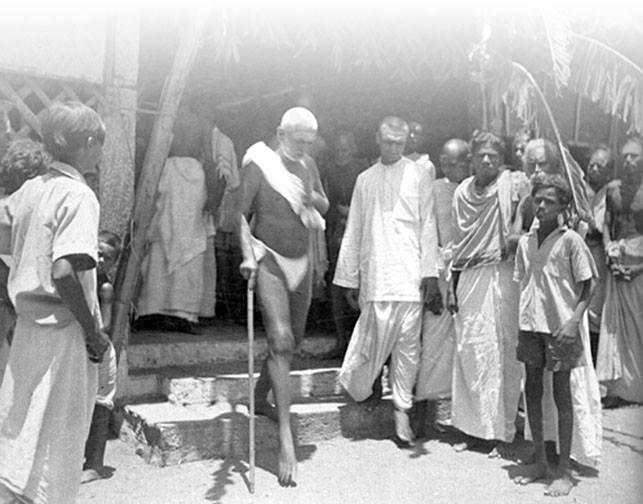702. Harmony in the Gita : Swami Sivananda
=========================================================================
Friday, 26 May, 2023. 05:30.
Srimad Bhagavad Gita
Man is a composite of three fundamental factors, namely, will, feeling and cognition. There are three kinds of temperament–the active, the emotional and the rational. Even so, there are three Yogas–Jnana Yoga for a person of enquiry and rational temperament, Bhakti Yoga for the emotional temperament, and Karma Yoga for a person of action. One Yoga is as efficacious as the other.
The Bhagavad Gita formulates the theories of the three paths without creating any conflict among them. It harmonises most wonderfully the philosophy of action, devotion and knowledge. All three must be harmoniously blended if you wish to attain perfection. You should have the head of Sri Shankara, the heart of Lord Buddha and the hand of King Janaka. The three horses of this body-chariot–action, emotion and intellect–should work in perfect harmony. Only then will it move smoothly and reach the destination safely and quickly. Only then can you rejoice in the Self, sing the song of Soham, be in tune with the Infinite, hear the soundless voice of the Soul and enjoy the sweet music of the eternal Self.
The central teaching of the Gita is the attainment of the final beatitude of life–perfection or eternal freedom. This may be achieved by doing one’s prescribed duties of life. Lord Krishna says to Arjuna: “Therefore, without attachment, constantly perform action which is duty, for, by performing action without attachment, man verily reaches the Supreme”.
The Gita is divided into three sections, illustrative of the three terms of the Mahavakya of the Sama Veda–“Tat Twam Asi–That Thou Art”. In accordance with this view, the first six discourses deal with the path of action or Karma Yoga, that is, the nature of “Thou”. It is called the Twam-pada. The next six discourses explain the path of devotion, the nature of “That”. This is called the Tat-pada. The concluding six discourses treat of the path of knowledge, the nature of the middle term “Art”. Hence, it is called the Asi-pada, which establishes the identity of the individual soul with the Supreme Soul.
The eighteen discourses are not woven in a discordant manner. Each one is intimately or vitally connected with its precedent.
Arjuna became very despondent. Lord Krishna’s opening remarks in the second discourse, which bespeak of the immortality of the soul, open his eyes and give him strength and courage. Arjuna then learns the technique of Karma Yoga and renunciation of the fruits of actions. He learns the methods of controlling the senses and the mind and practising concentration and meditation. This is followed by a description of the various manifestations of the Lord in order to prepare him for the vision of the Cosmic Form. Arjuna experiences the magnificent Cosmic Vision and understands the glorious nature of a liberated being. He is then given knowledge of the Field and the Knower of the Field, the three Gunas and the Purushottama. His knowledge is completed by an explanation of the divine attributes, the three kinds of faith and the essence of the Yoga of renunciation.
Just as a student is coached in a university, Arjuna is coached by Krishna for the attainment of knowledge of the Self in the spiritual university. Arjuna had various kinds of doubts; Lord Krishna cleared them one by one. He pushed Arjuna up the ladder of Yoga from one rung to the next. Eventually, Arjuna placed his foot on the highest rung, attained the supreme knowledge of the Self and exclaimed in joy: “O my Lord! my delusion has been destroyed. I have attained knowledge through Thy Grace. I am firm. All my doubts have now vanished in toto. I will act according to Thy word”.
You can become a liberated sage by annihilating the ego and the currents of likes and dislikes; by annihilating desires and cravings and destroying their residual potencies. Thus, you can rest in your true essential nature as Existence-Knowledge-Bliss Absolute and still be active in the affairs of the world. Now you will not be bound by your actions since the idea of doership has been destroyed by the attainment of knowledge of the Self. This is the keynote of the Gita.
*****
=========================================================================











Comments
Post a Comment